Lyst :: Any pronouns :: Queer and disabled :: side blog, won’t follow from here :: Commissions currently closed
Don't wanna be here? Send us removal request.
Text
Having "a lot" of followers on tumblr is funny because probably 80% of them are ghost blogs who haven't been on here in like a decade.
It's like, no no, those aren't my followers, that's a graveyard! I'm the caretaker of a thousands of tombs. I love them, but they've been dead for seven years.
66K notes
·
View notes
Text
I got to start playing Veilguard yesterday evening after a very full week. Not sure when I’ll be able to play again, but probably not before Friday, maybe Saturday.
At least I got to finish the intro.
Man, the game is beautiful and so fluid. I’m excited to play more!
5 notes
·
View notes
Text
Ngl I totally forgot fandom discourse was a thing. I don’t care man, I have car payments
113K notes
·
View notes
Text
The thing with Solas is… he woke up from uthenera to a world that he does not recognize, a horrible world where everything is awful, where his people are suffering badly, where everything he knows is gone. To put the cherry on top, it’s a world that he deliberately brought about by his own hands.
It’s exactly the same situation for Solas as it was for the Inquisitor when they time-traveled into the horrible future where Corypheus ruled. The Inquisitor had few qualms about sacrificing people in that future because it “didn’t really matter or exist” - the only thing that mattered was going back to the past to prevent that horrible future from occurring.
The Dalish derided and hated? The city elves in alienages? This is Solas’ Bad End Future. Solas does not consider the world around him to be truly real or right. He doesn’t understand the Dalish, and can hardly recognize them or City Elves as elves. He does not want to understand or even think about modern elves because it’s Solas’ fault that they were killed, that they were enslaved, that they have to live the terrible lives they do. He spends as much time in the Fade as possible because of escapism, frankly. Because some of his oldest friends still live there, and because he can still walk lost Arlathan’s streets in his dreams… he wants to be in the past again, where he didn’t fuck everything up.
He’s very much a lost, isolated character looking for guidance, a true hermit of the tarot. Every conversation he has with the other companions is him desperately sound-boarding off them, “What should I do? What would you do? What can I do?“ His conversations with Varric about the Man On The Island haunt me, especially. (“How can you be happy, surrendering? Knowing it will all end with you? How can you not fight?”)
So yeah, he is a bitter sleepwalker trying not to invest in anything around him… because of self-preservation. Because if he invests emotionally in it, it will make everything harder. If he was truly an asshole, and if people truly didn’t matter to him, this wouldn’t be a problem for him.
The touching part about Lavellan is not that he treats her better than other people, because he doesn’t. It’s that his feelings for her force him to confront the future that he made, and see it as real. (“You’re real, and it means everyone could be real. It changes everything, but it can’t.”) This future is real, and it’s something he made, and its reality matters deeply.
It’s the story of a god who is estranged from his people (literally, statues of Fen'Harel are not allowed inside Dalish camps) and his relationship with Lavellan helps him reconcile the reality of the world and decide what to do about it. It’s a sleeping god finally answering the call of the Dalish, who never expected to be answered. It’s a mortal convincing a god that his people still need protecting.
The story is incredibly touching to me, especially how I experienced it.
8K notes
·
View notes
Text
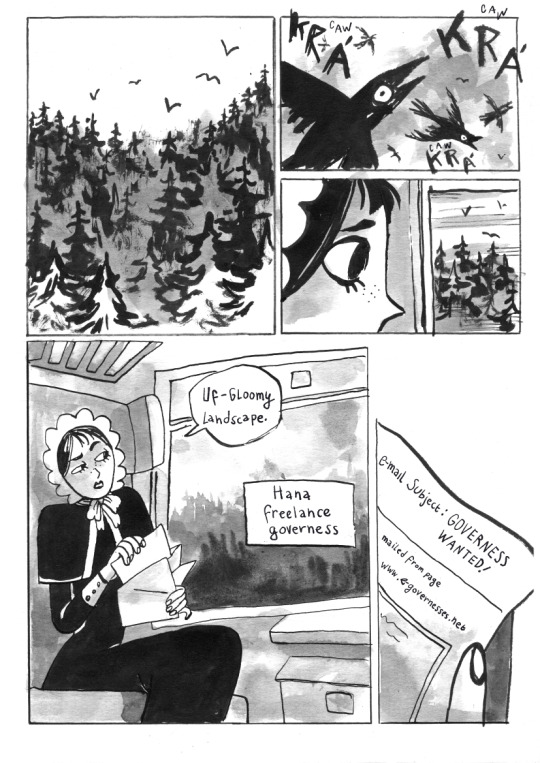
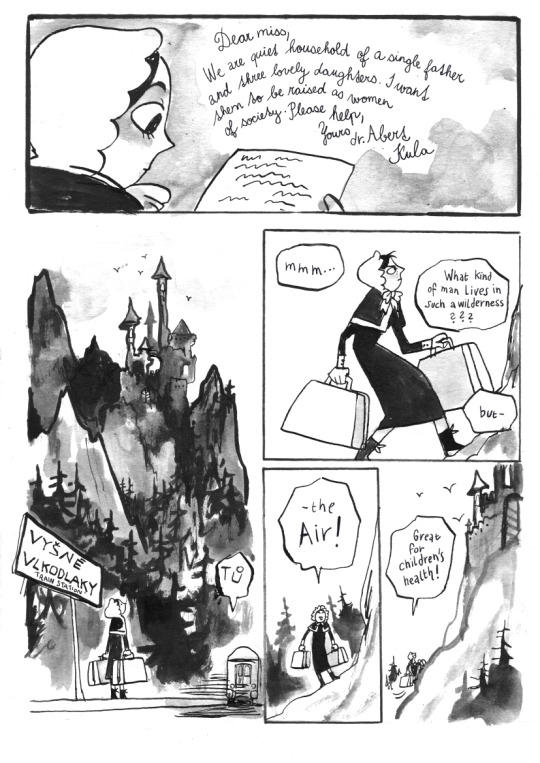
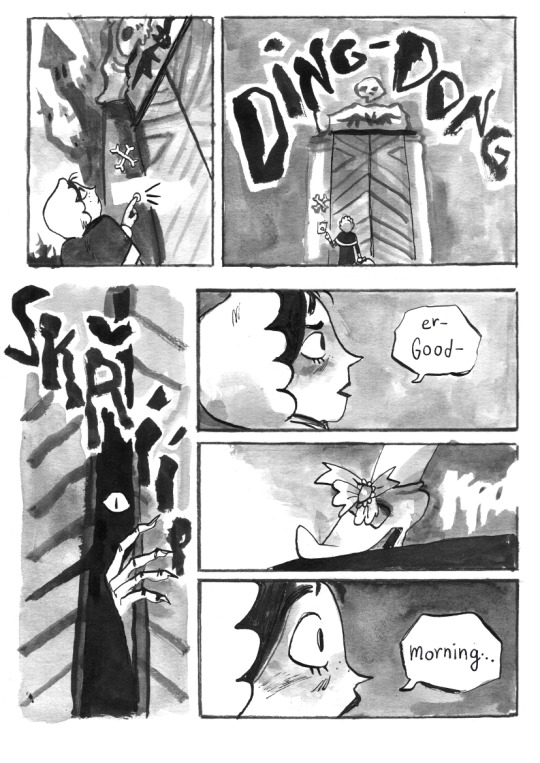
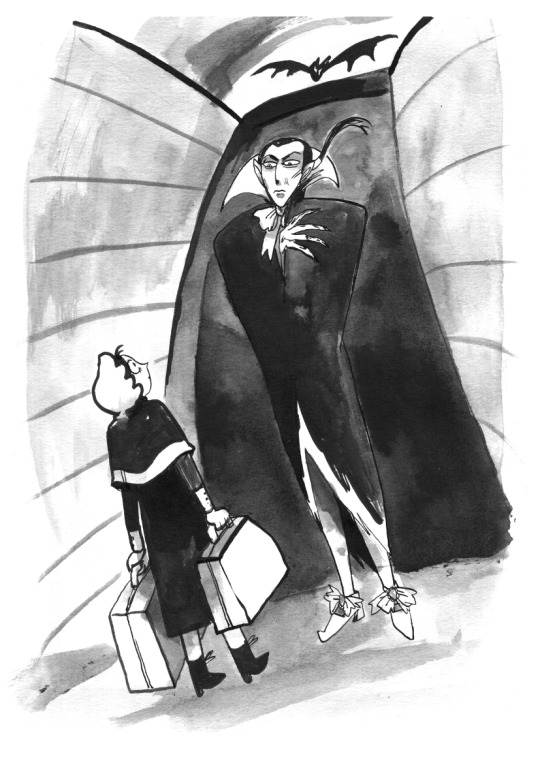
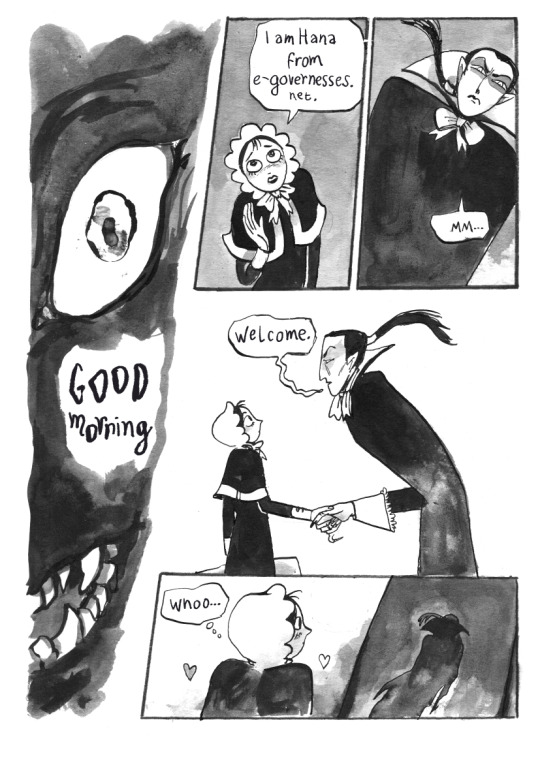
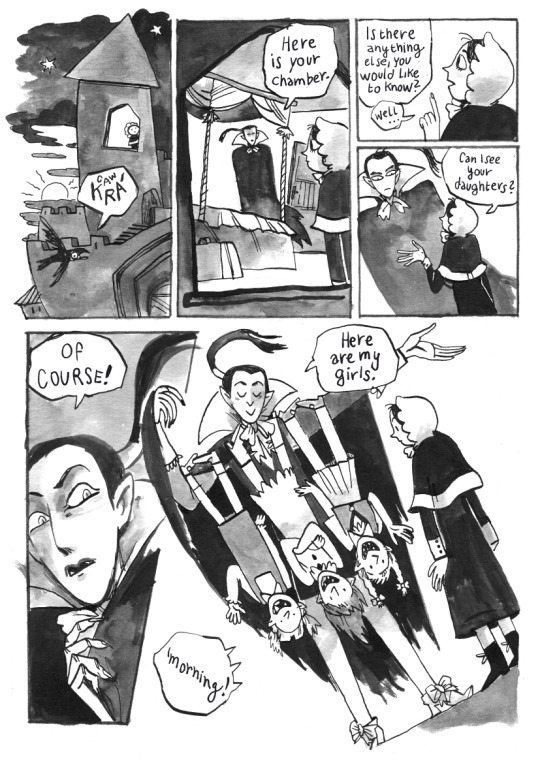
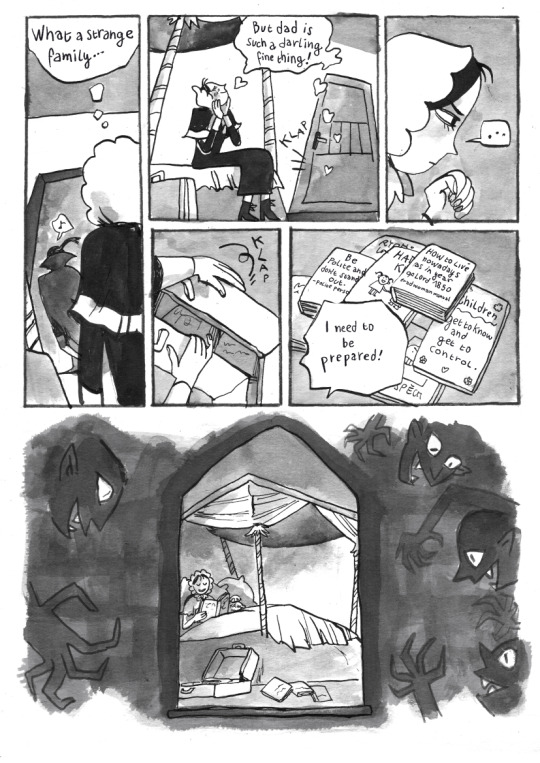
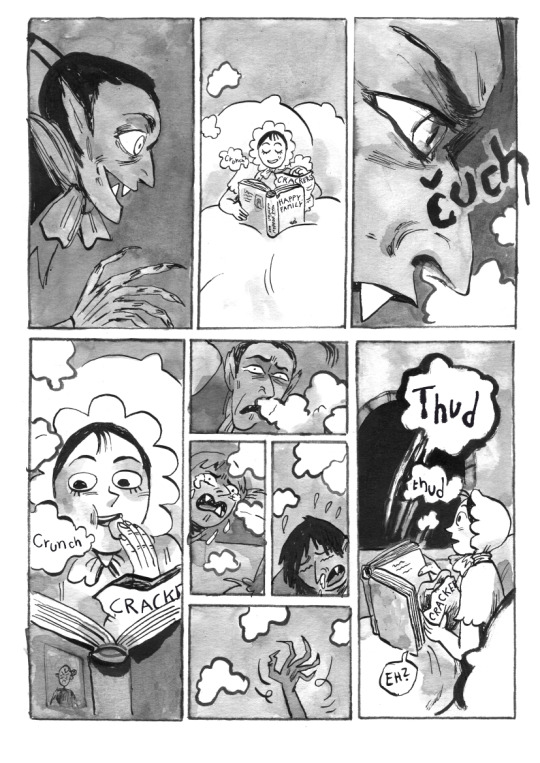
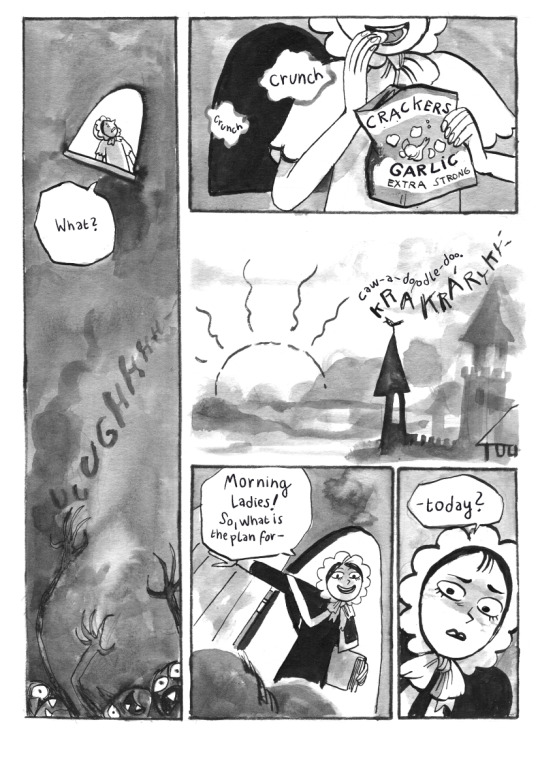
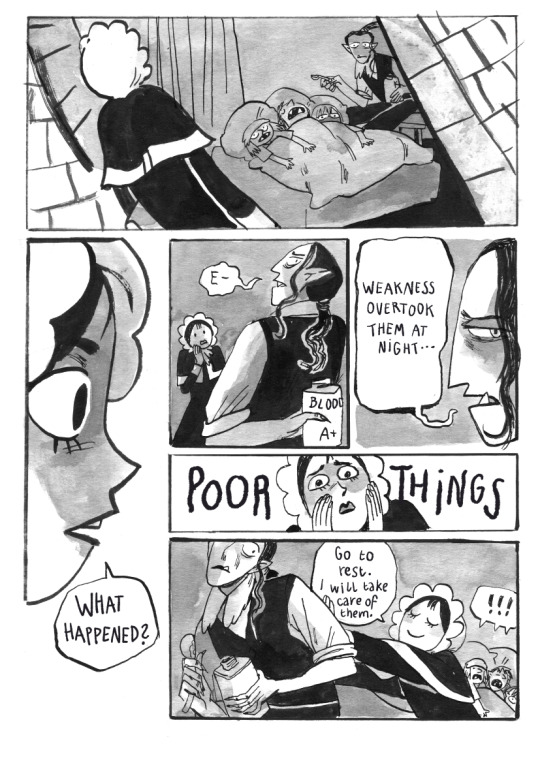
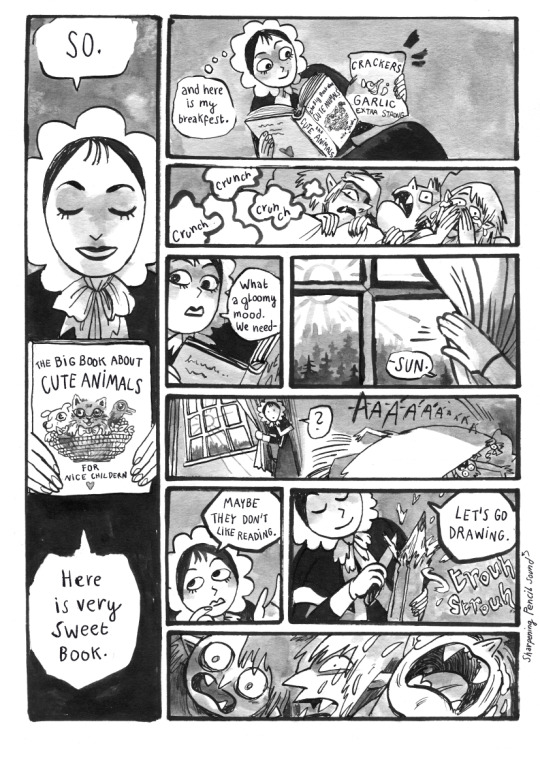
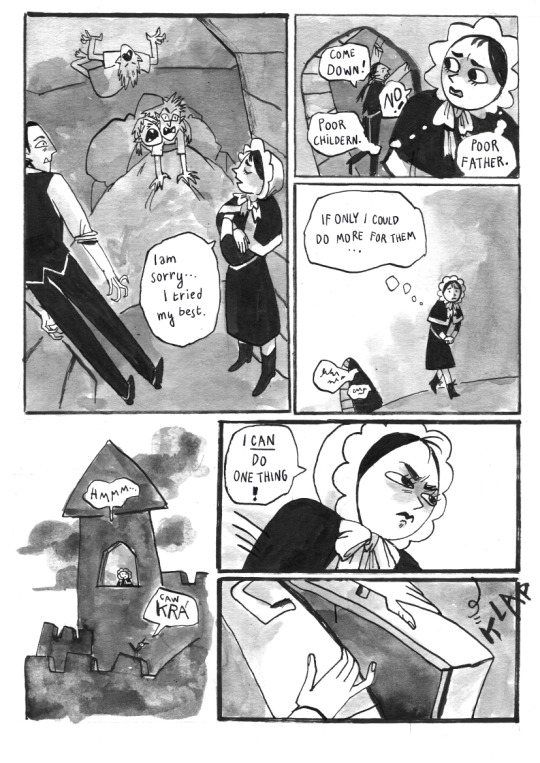


Birthday gift for my dear friend who loves vampires♥ . The whole thing was made in three days, I had too much fun drawing it! I created the cover drawing in the car on the way to the birthday party. So I had no time to scan it :D Well, if you enjoy reading it let me know and I will try to post more (I am making comics for my friend regularly, I am just too ashamed to translate and upload these silly things online x_x ) _____________________________________ Patreon Commissions
37K notes
·
View notes
Text






dragon age twt au? dragon age twt au. HAWKE X INQUISITION EDITION
sorry for not spacing these out more but i have worms infesting my brains and they’re all sending me psychic attacks related to dragon age.
5K notes
·
View notes
Text
idk what young person on the internet needs to hear this but you are not obligated to share any personal details about yourself online. in fact im gonna straight-up circle back to 00s era advice and say being anonymous is good actually
92K notes
·
View notes
Text

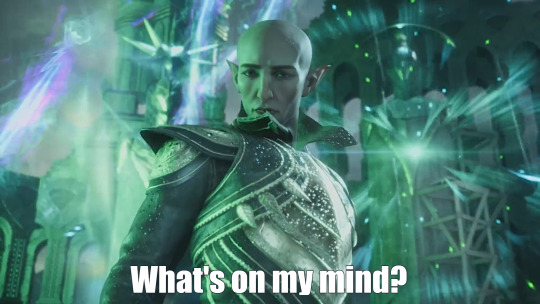





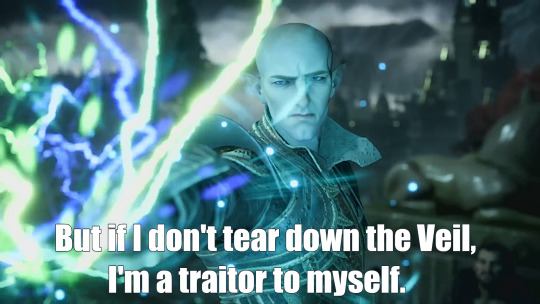
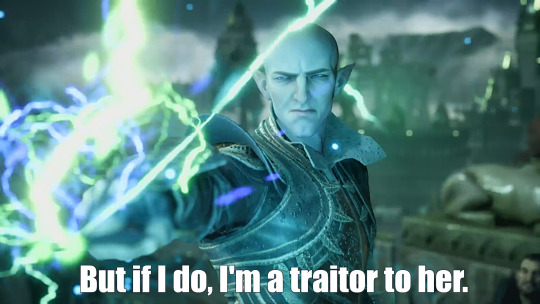

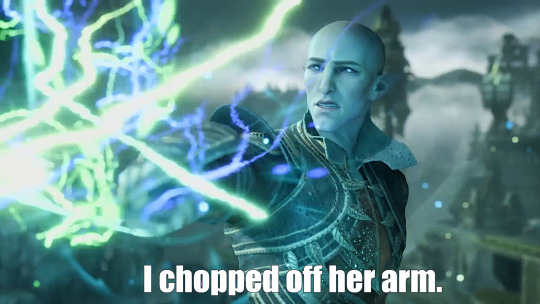

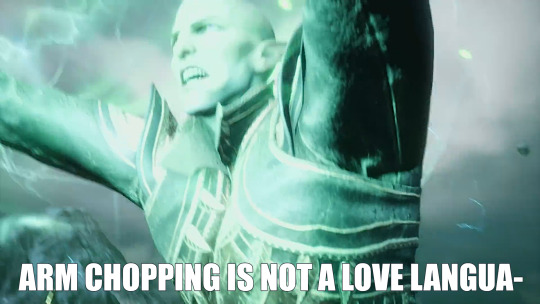
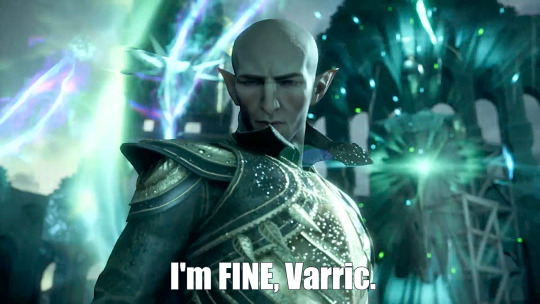
I spent too much time on this.
"Arm chopping is not a love language." - Nimona Movie
706 notes
·
View notes
Text
Alright folks. Here it is, my theory of what Ragnarok actually represents. It is very messy and I'm not sure I'm going to be able to actually convey my understanding clearly like I try with most things, because genuinely this is shit I would write a doctorate-level thesis on.
But we're going to try anyway.
So. After doing a lot to try to replicate animistic thinking, as well as taking a VERY deep read of the Norse myths, my theory is that Ragnarok is specifically allegory for societal collapse—the "end of the world" imagery and such is meant to convey what this feels like.
Recall what Odin says in Grimnismal. It goes something like this, since I can't be arsed to find the exact quote:
Huginn and Muninn fly over the world every day; while I fear Huginn ("thought") may not return, I fear Muninn's ("memory's") absence most.
When a society collapses, so does it's memory. It loses its technology, its methodologies, its paradigms, and everything it has learned about the world up to that point. Gone. Entire chapters of history erased.
What causes societal collapse is not always a conquering force, but is oftentimes the result of circumstances that a society orchestrates for itself. Think Rome.
People who have gone through societal collapse will probably develop an invested interest in figuring out how to prevent it entirely, so they don't have to start society all over again.
It's one thing to preserve the memory of "things collapsed and here's why" using a story. But it's another thing to do what apparently the Norse people did, which is cultivate a methodology for cognitively hardening their own society against collapse, using stories as a way to do it.
Like...I'm not kidding when I say they legitimately knew how the human mind works, and then built an entire system of stories and narratives that intentionally support the mind's freedom, cultivation, and agency. I can only convey a fraction of how this works in this post because the rest requires a deep-dive into behavioral psychology and neurological development.
All the tales leading to Ragnarok demonstrate various instances where the gods choose to follow their own agendas at the expense of the real people and forces in the world. All of these little things contribute to the magnitude of the event that is Ragnarok.
The tales represent these transgressions using allegories rather than literal events. This is because these stories were designed for children, who don't process information through a prefrontal cortex like we do as adults. They don't have them yet. But this gives kids an intuitive understanding for how circumstances of collapse feel, so they can recognize them in all their forms.
Loki is an allegory for the mischief we feel as children, and for the behaviors we demonstrate before we get to the age where we start valuing cooperation. In the myths, every time Loki causes mischief in ways that creates problems, the gods get mad at him and threaten Loki's life until he fixes his mess. Loki eventually becomes vindictive, kills Baldr in a jealous fit, and then is punished by being bound and buried beneath the ground, only to fight against the gods in Ragnarok.
The surface-level takeaway is a lesson in parenting: If we punish kids for their mischief, they're going to become vindictive adults, and these adults are going to have it out for the rest of society because they've been disenfranchised.
But it doesn't just end here. Consider how we punish ourselves for our own sense of mischief, beating ourselves up for having "problematic" thoughts and trying to bind and bury those thoughts in the depths of our mind.
These thoughts come from a place our mind known as the limbic system, which is focused on avoiding pain and seeking pleasure, and—most importantly—does not understand the world or make decisions using logic and reason, but in terms of what feels enjoyable and what doesn't.
We tend to call this system our inner child.
When we punish our inner child, that child starts doing exactly what Loki does and resorts to malicious and petty tricks. We can hold this behavior at bay until something causes us to "snap" (like Jörmungandr's tail does) and out comes the malice of the disenfranchised inner child, which creates a terrible cascade of social consequences for us.
Now, if we were to listen to these stories as kids, we would naturally be very upset whenever Loki was threatened of punished, because we think out of the limbic system at that age and Loki is meant to represent us—specifically, the state of being a kid. We would see what comes to pass, with Loki being imprisoned and fighting the gods against Ragnarok, and it would become clear to us that there's consequences for punishing mischief AND also causing too much of it.
Now I don't know about you, but I was very motivated by a sense of justice as a kid. Hearing Loki's arc would have inspired me to learn how to be friends with my sense of mischief while also learning to use it in ways that were cooperative and social, because this would have been how I could right the wrong I felt was done to Loki. It would also mean my own limbic system will not fight against me in the future, but be a modality of thought I can always access. (This is the beauty of the way the Norse myths are crafted; they are designed to instill knowledge of the world using mechanisms that reinforce one's own sense of agency and competency, so rather than being told the moral of this tale, it sets me up to run right into the conclusion it wants me to draw, but in a way that makes me feel smart and therefore inspires me to value it.)
The binding of Fenrir serves a similar allegory. When we become explosively angry in the way that Fenrir represents, it consumes our wisemind the same way Fenrir consumes Odin during Ragnarok. But this only happens if we bind Fenrir/our anger. By demonizing this nature of ours simply for existing, it will not only refuse to listen to us, but also turn against us. Remember that Fenrir was willing to socialize and cooperate with the gods before his betrayal.
(Honestly, I believe this is why ulfheiðnar existed the way they did. Even though the animalistic rage of ulfheiðnar was too terrible for domestic society, it was not demonized, but instead given a social function. People would learn to understand and partner with their own sense of rage, and I'm guessing this is also how they were able to keep their sense of reason and priorities straight even while going berserk from psychoactives.)
These two examples serve to illustrate how societal collapse stems from binding or punishing our own natures. But also fearing our own nature as mortals factors into it.
For example, Naglfar. This is a ship constructed of dead people's fingernails, and its completion is part of what signals the beginning of Ragnarok. But as the story goes, we can delay Naglfar's construction by trimming the nails of the dead before we bury them.
Naglfar represents "neglect for the dead," and this is significant because the act of no longer viewing the dead as people is sort of like the canary in the coal mine for no longer view each other as people...and no longer seeing people as people is what defines Ragnarok.
A society is at peace when its people have no fear of death, and having no fear of death comes only by incorporating death as a normal and familiar part of life, just like we do with birth. Our relationship with death is a litmus test for our relationship with our own humanity—if we fear the dead and cannot see them as human beings, then we are always going to fear a part of our own humanity, and be at war with it. The simple act of keeping the nails of the dead well-groomed because it stalls Naglfar's construction was a way to remind people why such a simple act was profoundly important.
And these are just the things that I can think of off the top of my head that are the most obvious examples. There are—and I shit you not—multitudes of these things laced within the Norse myths.
(I haven't even gotten to the part about how the Norse creation myth uses what the womb feels like to characterize it. Telling this story to very little children helps them establish a sense of familiarity, belonging, and secure attachment with the entire world from the get-go. If they learn the world is everything they've already experienced, then their bodies will never be afraid of it, because nothing about it will feel unknown or unknowable. Like, how fucking dope can you get.)
So here's where we get to the really dense irony of all this: Why we don't pick up on all these nuances as Westerners and have so far missed this entirely.
It is for two reasons.
The first is because our society values the things that the Norse people identified as contributing to societal collapse—namely, the act of conquering/competing against other forces and conquering/competing against our own natures. The transgressions of the Aesir are not things we register as problematic because to us they're normal.
The second is that we don't think animistically. The way we are taught to convey, interpret, and transmit information is designed PURELY by and for the prefrontal cortex, with neglect to everything else (if you ever wonder why Americans look weird in how we behave, this is why). But because we only prioritize communicating this way, we're missing out on all the context added within the Norse myths. These myths function the same way Old Norse kennings did, in that they are designed to speak to ALL areas of the brain at once and in tandem, but if we only engage with it using one part of the brain, we're only going to get a small piece of the picture and the rest is going to look weird.
(Little experiment for you: Try to logic something out in your mind or think through a complex problem without using words or sentences to do it. Use any other kind of thought-process besides language. I promise you that not only is this possible, but it yields a completely different kind of experience and conclusion than you might otherwise reach.)
Honestly, I don't even think Snorri himself fully understood what he was looking at when he was recording the Norse myths. I think he was just writing them down according to how they were told, word-for-word. But his cluelessness is our good fortune now, because he not only preserved the cultural stories, but also what I consider an entire cognitive technology.
And every time I look at it, I can't help but think about the generations of people who sat around the fire in the dead of winter, weaving, crafting, and figuring out better ways to fortify their society, raise kids so they became fine and truly fearless people, and conserve information. This is, as far as I'm concerned, real magic.
They knew some shit.
569 notes
·
View notes
Text
What if we return to the ruins of Skyhold in Dragon Age: The Veilguard and the DAI main theme plays in minor key, what then?
7K notes
·
View notes
Text
solas be like "you have bewitched me body and soul and I love, I love, I love you" throughout the entire romance and y'all wondering why solavellans are so feral about him
2K notes
·
View notes
Text
You’re getting married to your Tumblr pfp how fucked are u
86K notes
·
View notes
Photo
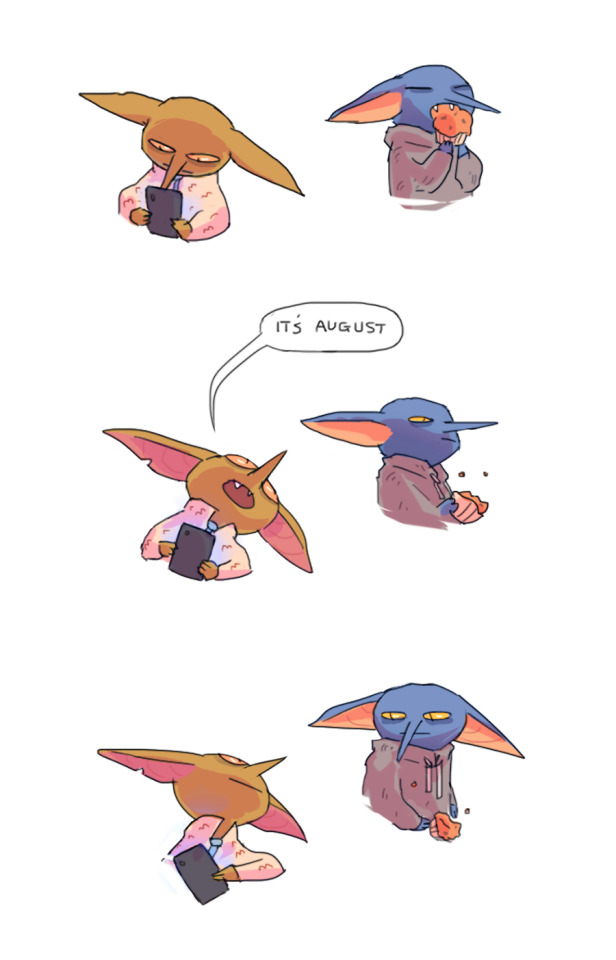
distressing things to say to your friends
231K notes
·
View notes
Text
it's all fun and game to associate certain flowers with your OCs until you see a patch of dandelions and start crying
11 notes
·
View notes
Text
animated fantasy films just don’t make fucked up evil castles like they used to
101K notes
·
View notes
Text

#has this been done already?#I’m sure it has#my art#duolingo#he’s scary sometimes#based on a conversation with a friend
51 notes
·
View notes
Text

the scoobies (plus faith and spike)
3K notes
·
View notes